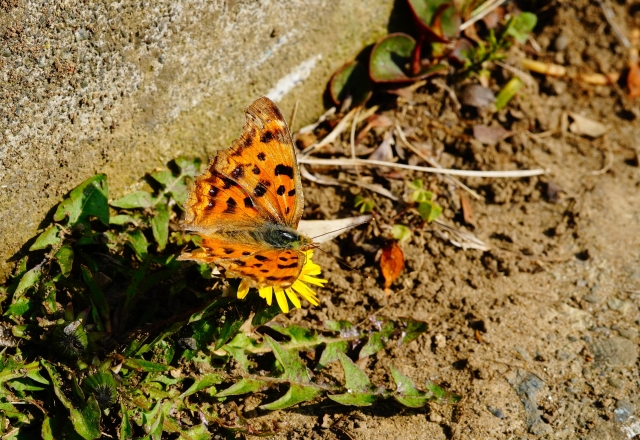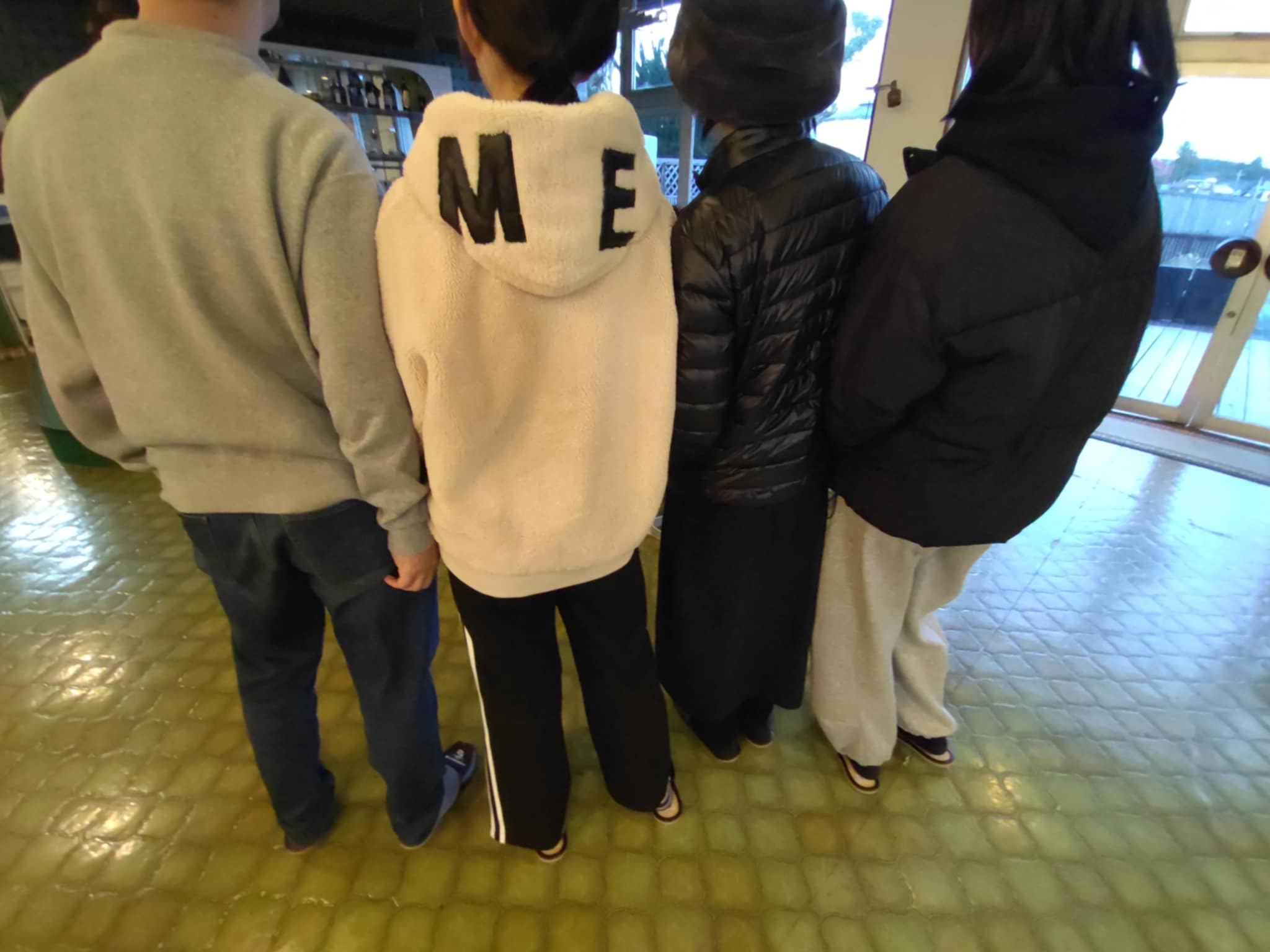自己リトリート21【農園型リトリート】
久しぶりに自分のリトリートに行ってきました!
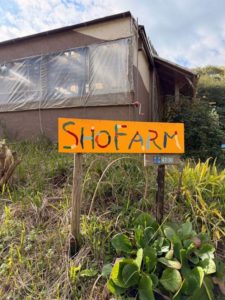
今回の舞台は、横須賀にあるSHO FARM(ショウ ファーム)さんです。
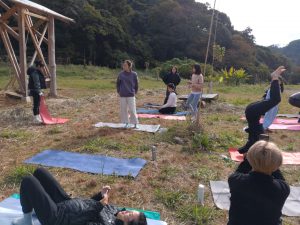
主催は東京赤坂と京都にヨガスタジオを持つNAMIスタジオさん、いわゆる「ヨガリトリート」です。
日本語と英語、両方でのバイリンガルレッスンが特徴で、参加者の半数以上が外国人でした。
かなり熟練した方もいます、ウォーミングアップで逆立ちしている人も!(笑)
バイリンガルのレッスンを受けていて、これだけ英語が話せるといいな、と思って、私もモチベーションが大いに上がりました、今、海外からのお問い合わせも増えていますから、頑張って英語の勉強をしないと。。
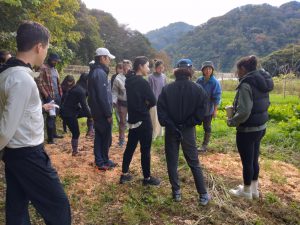
朝ヨガが終わった後は、SHO FARMさんのファームツアーです、無農薬、無化学肥料で農業をする意味や、環境、環境負荷の少ない生き方、などなど、人と自然との関わりについて、いろいろ考えさせられます。
この「考えさせられる」ことが、人にとって大事なことかと思います。
実は最近、私のところにも「千葉で自然体験できますか?」という問い合わせが増えています。
理由は「熊が出ないから」だそうで。。
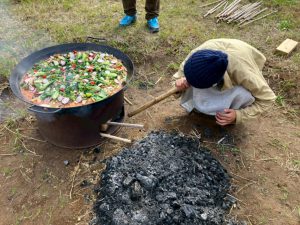
では、なぜ熊が集落まで下りてきてしまうのか?山に食べ物がないのか、雑木林の減少なのか、人工林の影響なのか?
すぐに答えは出ないけれど、こういう自然と人の関係を考える時間そのものが、リトリートの本質なんだと思います。
熊がいないからという理由で、千葉で山で体験できるプログラムを行ったとしても、森について「考えさせられる」機会は用意しておきたいですね。
実際、千葉も熊がいない、というより「熊だけはいない」という状況で、他の野生動物はどんどん山が荒廃し、食糧が無くなって、集落に下りてきて農作物の被害が大問題になっています、特にキョンが大発生しています。
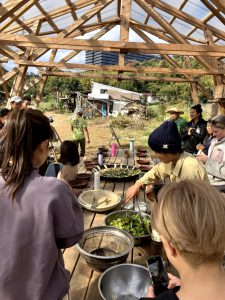
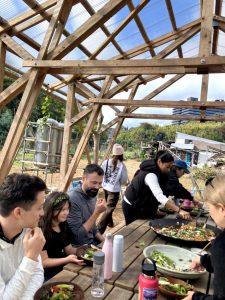
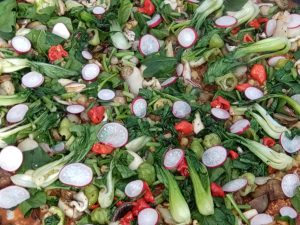
さて、皆で力を合わせて、収穫したての野菜のサラダ、そして野菜たっぷりのパエリアが出来上がりました!
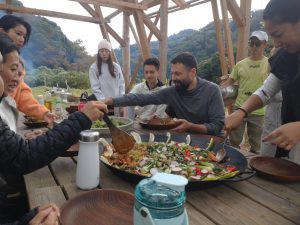
ヨガとファームツアーの後でお腹も空きました!私も英語で頑張って話しましたよ!最近、毎日通勤では米軍放送を聴いて、家でもAIを使って文法を学習して頑張っていますから!

野菜の収穫をお手伝いして、サラダとパエリアを皆でつくって食べて、最後は焚き火を囲んでの瞑想プログラム。食・自然・環境・そして英語。いろんなテーマが一つに重なる時間でした。
いろんな体験が重なって、いろいろ感じる事は多かったけど、何かを急いで結論づけるのではなく、しばらく自分の中で「寝かせる」そうすると、ゆっくり何かが発酵していく。リトリートって、そんな感覚が大事なんだと思います。
私は温泉旅館やグランピングなど「リゾート型」のリトリートが中心ですが、こうした暮らしに近い「農園型リトリート」も社会にとって必要だと感じました。
こうして、自分のリトリートは続いていきます。
—————————
I recently went on a retreat myself for the first time in a while.
This time, the venue was SHO FARM in Yokosuka.
The retreat was hosted by NAMI Studio, a yoga studio with locations in Akasaka (Tokyo) and Kyoto—what you’d call a true “yoga retreat.”
Their lessons are bilingual, offered in both Japanese and English, and more than half of the participants were international guests.
Some were very experienced—there were even people doing handstands during the warm-up! (laugh)
Taking bilingual classes made me really wish I could speak English that well. It boosted my motivation a lot, especially since inquiries from overseas have been increasing lately. I really need to keep studying…
After the morning yoga session, we went on a farm tour at SHO FARM. Learning about their philosophy of growing vegetables without pesticides or chemical fertilizers, their thoughts on the environment, and their approach to low-impact living made me reflect deeply on the relationship between humans and nature.
And I believe that this act of “being made to reflect” is actually something very important for us.
Recently, I’ve been receiving inquiries like, “Can we do nature experiences in Chiba?”
The reason, they say, is “because there are no bears.”
So why do bears come down into villages in other regions?
Is it because there’s no food in the mountains? Because mixed forests are disappearing? Because of the impact of artificial forests?
There’s no quick answer.
But the time spent thinking about these human–nature relationships—that itself is the essence of retreat.
Even if we offered mountain programs in Chiba simply because there are no bears, I’d still want to create moments where people can reflect on the forest.
Not to “run away from bears,” but to “face the idea of bears”—not physically, but psychologically.
After that, everyone worked together to prepare freshly harvested vegetable salad and a vegetable-packed paella!
After yoga and the farm tour, we were all hungry! I tried my best to communicate in English too. Recently I’ve been listening to the U.S. military radio station on my commute every day, and I’ve also been studying grammar at home using AI. I’m really putting in the effort!
Helping with the harvest, making salad and paella together, and ending the day with a meditation program around a campfire.
Food, nature, environment, and English—all kinds of themes overlapped into one experience.
There was a lot to feel and notice, but instead of rushing to any conclusions, I prefer to “let it rest” inside myself. When I do that, something slowly begins to ferment. I think that’s an important part of retreat.
My retreats are usually “resort-style”—at hot spring inns or glamping sites—but this kind of “farm-based retreat,” rooted in everyday living, feels essential for society as well.
And just like that, my retreats continue to evolve.
——————————————-
【追記】自分のリトリート実践例です。
【リトリート番外編】
【リトリート休養術】


